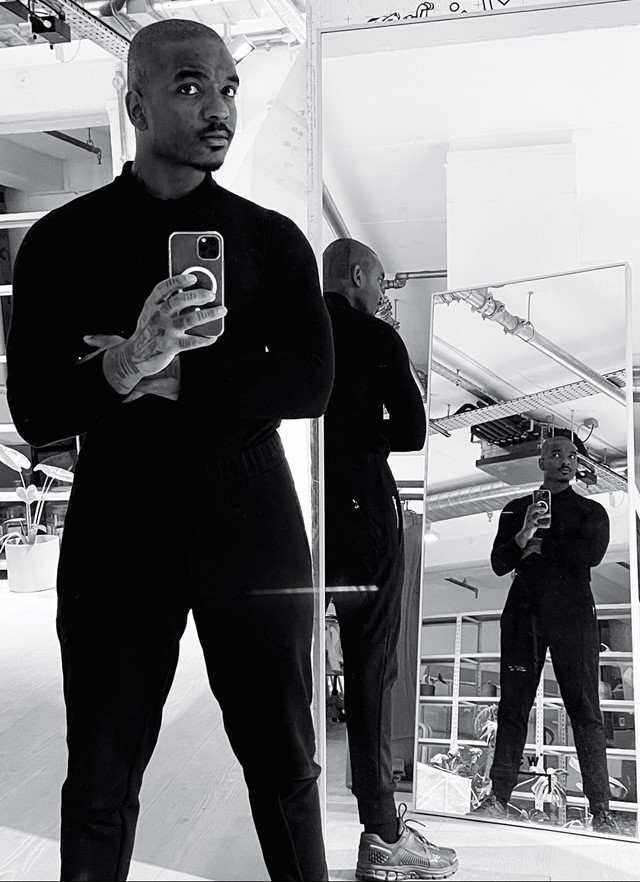Speaking in AnOther Magazine S/S21, the British designer behind A-Cold-Wall discusses the idea of congregating in digital spaces, and running a fashion brand post-pandemic
This article is taken from the Spring/Summer 2021 issue of AnOther Magazine. To celebrate our 20th anniversary, we are making the issue free and available digitally for a limited time only to all our readers wherever you are in the world. Sign up here.
“There’s something interesting about the way we’ll be engaging with environments based on space and ownership as we move through the pandemic. There’s been a push into gaming worlds and digital spaces, from pro-democracy activists in Hong Kong sharing messages via [the video game] Animal Crossing to the Black Lives Matter movement being led online. This idea of congregating in digital spaces has really come to the fore.
“In her exhibition catalogue Typhoon Coming On, Sondra Perry talks about Black people in digital spaces and states that the majority of social media accounts within the western world are owned by Black people. However, in terms of space, land, equity and property in this country, Black British Caribbeans have the lowest level of ownership, education and income. As a member of the diaspora, I can’t discuss a future space without considering a wider perspective of how we can move my people forward. My obligations are linked to land ownership in order to provide opportunities and welfare for my community, and that starts with remapping my revenue from fashion to support a wider discourse. I have to consider the plurality of other people of colour’s experiences. I think it would be very immature of me to look at it from a selfish point of view. It would also be inappropriate to talk about a level of success without giving back to the community that has supported it.
“I’ve always politicised my work without estranging any type of audience. I’m usually talking about issues that are felt and experienced by all, and there isn’t necessarily a bias around who I wish to speak to. There’s an understanding of it being emotional, there is no agenda behind the work I’m making. The company’s growth and stability over the past few years have given me an opportunity to make work that actually responds to environments and circumstances that are the result of systemic injustices through aid, action and support, because the messaging and the stability of the brand is becoming so powerful and strong.
“A-Cold-Wall was built to be something that could scale from the get-go. It wasn’t supposed to be a niche project. I always wanted to create something big and substantial that could talk to as many people as possible. Both the pandemic and the civil rights movement that we saw take place last summer have given me the opportunity to humanise the brand again. Once a concept gets big, you tend to start operating as a brand rather than a person. So those events allowed me to give us a new voice that isn’t about selling products but making sure that the right principles are being communicated by us, and I feel like that’s going to be the future of how businesses and brands operate. I don’t believe that fashion brands should just sell people clothes and do nothing else. When capital and acquisitions are accruing, the value isn’t just in the product, it’s in the ethos that surrounds the company and its practices. You have to ask yourself, who is behind the company? What are they doing? All of these matters come into play. This isn’t something new, we all know it. However, 2020 amplified the importance of those soft skills and those metrics that aren’t necessarily tangible but are spiritual. You wouldn’t feel good buying from a company that you know profits from modern-day slavery – it should be illegal but it’s not because there are sanctions across different territories – your spirit wouldn’t feel right doing that. I think our feelings and our consciences are beginning to lead more – to have more of an impact on how companies and fashion brands are going to be leading and taking up space in the future.”
Samuel Ross has always placed politics at the forefront of his practice. Born in Brixton to second-generation Windrush parents, the designer, fine artist and sculptor launched his brand, A-Cold-Wall, in 2015 as a response to the dialogue around classism in Britain. It resonated directly with a fresh generation of youth. Having originated as a think piece about socio-geographic injustices – the name reflecting the barriers inherent in society – A-Cold-Wall operates with a socialist perspective while navigating a capitalist system. As a teen, Ross sold bootleg Nike goods from his mother’s living room. Today, thanks to his visionary talent and creativity, a solid brand premise and mentorship from Virgil Abloh, he is a Fashion Award winner and LVMH Prize nominee, with more than 100 global stockists and a ferocious cult following.
